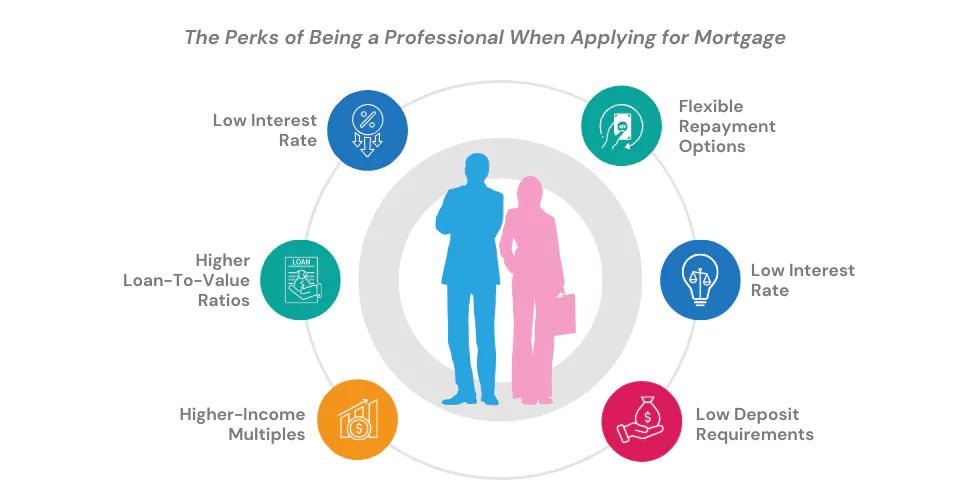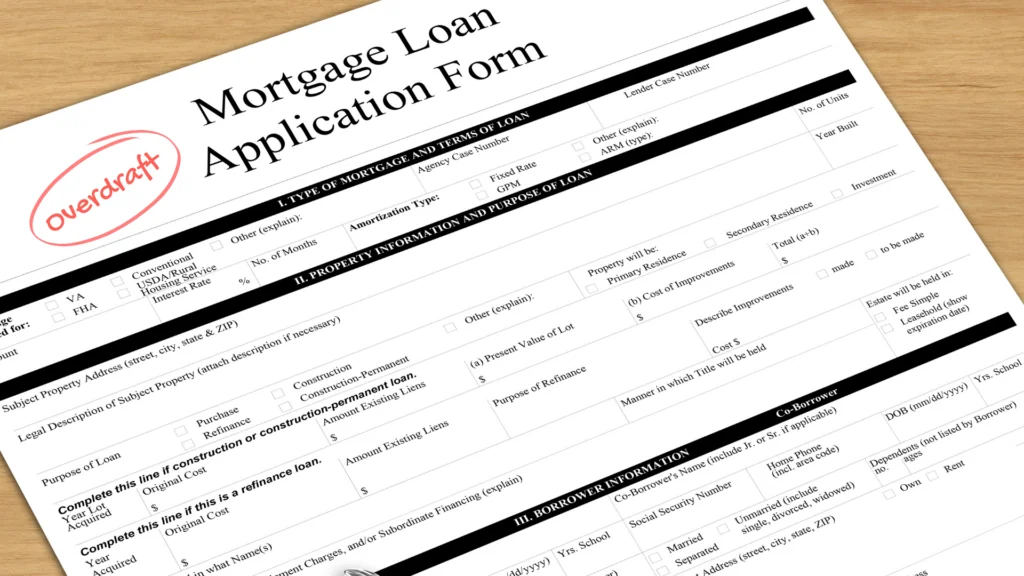- How Do Lenders Calculate How Much You Can Borrow?
- What Influences Your Mortgage Amount?
- How Much Mortgage Can You Get on a Joint Salary?
- Can You Get a Mortgage on £20k a Year in the UK?
- How Does Your Profession Affect How Much You Can Borrow?
- How Much Should You Earn To Get a Mortgage?
- What if I Have a Bad Credit?
- Key Takeaways
- The Bottom Line
How Much Mortgage Can I Get Based on My Salary?

Buying a home is a big deal, and one of the first things you’ll want to know is how much you can borrow.
This is important because it helps you figure out what kind of house you can afford.
In this guide, we’ll explain how lenders work out how much you can borrow based on your salary. We’ll also give you some examples to help you get a better idea.
By the end, you’ll have a clear picture of what you can afford and be ready to start your home-buying journey.
How Do Lenders Calculate How Much You Can Borrow?
Lenders in the UK primarily use income multiples to determine how much you can borrow.
This means they multiply your annual salary by a certain figure—typically between 4 and 4.5 times your income.
In some cases, lenders may stretch this to 5 or even 6 times your salary, depending on circumstances like your profession, credit score, and deposit size.
But, the amount you can borrow isn’t just about your income.
Lenders also consider your spending, existing debts, and overall financial situation to ensure you can comfortably afford your mortgage payments.
You can check our complete guide about mortgage affordability to learn more.
If you’re wondering, “How much mortgage can I get for my salary?” here’s a simple guide:
| Salary | 4 Times Income | 4.5 Times Income | 5 Times Income | 6 Times Income |
|---|---|---|---|---|
| £20,000 | £80,000 | £90,000 | £100,000 | £120,000 |
| £25,000 | £100,000 | £112,500 | £125,000 | £150,000 |
| £30,000 | £120,000 | £135,000 | £150,000 | £180,000 |
| £35,000 | £140,000 | £157,500 | £175,000 | £210,000 |
| £40,000 | £160,000 | £180,000 | £200,000 | £240,000 |
| £50,000 | £200,000 | £225,000 | £250,000 | £300,000 |
| £60,000 | £240,000 | £270,000 | £300,000 | £360,000 |
| £70,000 | £280,000 | £315,000 | £350,000 | £420,000 |
Remember, these figures are only a guide. The actual amount you can borrow might change depending on your personal situation and the lender’s requirements.
For accurate estimates, use the mortgage affordability calculator to see what mortgage you can get based on your salary.
What Influences Your Mortgage Amount?
As we’ve talked about, lenders look at the whole picture to see if you can afford it and how risky you are as a borrower.
Here’s a breakdown of the key things that matter:
Your Income
This is one of the biggest factors.
Lenders usually multiply your yearly income by a number between 4 and 4.5 to see how much you can borrow. The more you earn, the more you can usually borrow.
Your Spending
Lenders also check how much you spend.
They want to make sure you can easily pay your mortgage. If you spend a lot, you might not be able to borrow as much.
Your Existing Debts
Any debts you already have, like credit cards or loans, can impact how much you can borrow.
Lenders need to see that you can manage your current debts and still afford mortgage payments. They’ll look at your debt-to-income (DTI) ratio, which compares your monthly debt payments to your income.
A high DTI ratio might limit how much you can borrow because it shows that a large part of your income is already going towards debt.
To understand your situation, you can use a DTI ratio calculator to see how your debts might affect your mortgage options.
Your Deposit
The more you save for a deposit, the better.
A big deposit means you need to borrow less, which is good for lenders. This often means you get a better deal with a lower interest rate.
Your Credit Score
Your credit score shows how good you are at managing money.
A good score can help you get a better mortgage deal and borrow more. A bad score might make it harder to borrow and could mean you can’t borrow as much.
How old you are can affect how long you can borrow for.
Younger people can usually get longer mortgages, which means lower payments and a bigger mortgage. Older people might have shorter options, which can limit how much they can borrow.
The Type of Property
The kind of property you want to buy also matters.
Lenders check if it’s a normal house or flat, or something different like a listed building. Unusual properties can be harder to get a mortgage for.
Your Job
What you do for a living can also make a difference.
Some jobs, like doctors or lawyers, are seen as good and stable. Lenders might offer you a better deal if you have one of these jobs.
How Much Mortgage Can You Get on a Joint Salary?
If you’re applying for a mortgage with a partner, relative, or friend, the lender will combine your incomes to calculate the total amount you can borrow.
This is known as a joint mortgage and usually lets you borrow more than if you applied alone.
For example, if both you and your partner earn £30,000 per year, a lender offering 4.5 times your combined income might approve a mortgage of up to £270,000 (£60,000 x 4.5).
This higher borrowing capacity can make a big difference in the type of property you can afford.
Can You Get a Mortgage on £20k a Year in the UK?
Yes, it’s possible to get a mortgage on a £20,000 salary. But the amount you can borrow will be more limited compared to higher earners.
Using a 4.5 times income multiple, you could potentially borrow up to £90,000. However, to qualify for a mortgage on this salary, you’ll need to show that you can comfortably manage your monthly payments, even with your other financial commitments.
Lenders may also look more favourably on your application if you have a larger deposit, as this reduces the risk for them and can improve the terms of your mortgage.
How Does Your Profession Affect How Much You Can Borrow?
Certain professions, such as doctors, lawyers, and engineers, may be eligible for higher income multiples due to their typically stable and high earning potential.
Lenders view these professions as lower risk, which may allow you to borrow more than someone in a different job with the same salary.
For example, some lenders may offer up to 6 times your salary if you work in a high-demand, high-earning profession.
This could make a big difference in the mortgage you qualify for and the properties available to you.

How Much Should You Earn To Get a Mortgage?
There’s no fixed salary you must earn to get a mortgage.
It depends on several factors, like the size of the mortgage you want, the lender’s rules, and your overall financial situation.
As discussed, in the UK, lenders usually calculate how much you can borrow by multiplying your annual salary by 4 to 4.5 times.
But this isn’t the only thing lenders consider. Lenders also look at your spending, existing debts, and lifestyle to see how much you can comfortably afford.
If you have high monthly expenses or debts, the amount you can borrow might be lower, even if your salary suggests otherwise.
If you want to borrow more than 4.5 times your salary, some lenders might offer higher multiples if you have a larger deposit, an excellent credit score, or work in a stable, high-paying job like medicine or law.
To get a clearer idea, it’s a good idea to use a mortgage calculator or speak with a mortgage advisor who can give you personalised advice based on your situation.
What if I Have a Bad Credit?
Bad credit can make it harder to get a mortgage, but it’s not impossible.
Lenders use your credit score to see how reliable you are at paying back money.
A low score might limit your options or mean you get a worse deal. But there are still ways to get a mortgage:
- Specialist lenders. Some lenders offer mortgages to people with bad credit. These mortgages often have higher interest rates because they’re riskier for the lender.
- Larger deposit. A bigger deposit can help you get a mortgage, even with bad credit. This is because it reduces the risk for the lender.
- Improving your credit score. If you’re not in a hurry, try to improve your credit score before applying for a mortgage. This can help you get a better deal.
- Using a good mortgage broker. A mortgage broker can help you find lenders that offer mortgages to people with bad credit. They can also guide you through the application process.
Key Takeaways
- Lenders in the UK typically allow you to borrow 4 to 4.5 times your annual salary; some may offer up to 5 or 6 times based on your situation.
- Your borrowing amount depends on more than just your income—lenders also consider your spending, debts, deposit size, credit score, age, property type, and job.
- Applying with a partner or co-borrower can increase your borrowing power, letting you afford a more expensive home.
- You can get a mortgage on a £20,000 salary, but you may need a larger deposit to improve your chances.
- Certain professions, like doctors or engineers, may qualify for higher income multiples due to stable, high earning potential.
- There’s no fixed salary needed for a mortgage; it all depends on your financial situation and the lender’s criteria.
- Bad credit can make getting a mortgage harder, but you can still qualify with a larger deposit, through specialist lenders, or by improving your credit score.
The Bottom Line
Knowing how much mortgage you can afford is important when buying a home. It helps you find a property within your budget.
But many homebuyers aren’t sure how much they can borrow.
If you’re unsure, a mortgage broker can help you figure out your pre-approval amount. This gives you a better idea of what you can spend.
They can also compare different mortgage options to find the best one for you. This is especially helpful if your credit isn’t great or if you can’t pay a lot upfront.
Finally, a mortgage broker can help you calculate your monthly mortgage payment and create a budget. This helps you make sure you can afford your payments and avoid financial stress.
By working with a mortgage broker, you make buying a home easier and less stressful.
Want to save time and stress? Get in touch with us. We’ll connect you with a trusted broker who can help you with your mortgage needs.
Get Matched With Your Dream Mortgage Advisor...

Frequently asked questions
How big a mortgage can I get in the UK?
The size of your mortgage depends on a few things, mostly your income. Most lenders will let you borrow 4 to 4.5 times what you earn each year.
For example, if you earn £30,000, you might be able to borrow between £120,000 and £135,000.
Some lenders might offer up to 5 or 6 times your income if you have good finances, like a high credit score, a bigger deposit, or a stable, well-paid job.
Your overall financial situation, including how you spend money, your debts, and the kind of property you want, will also affect how much you can borrow.




